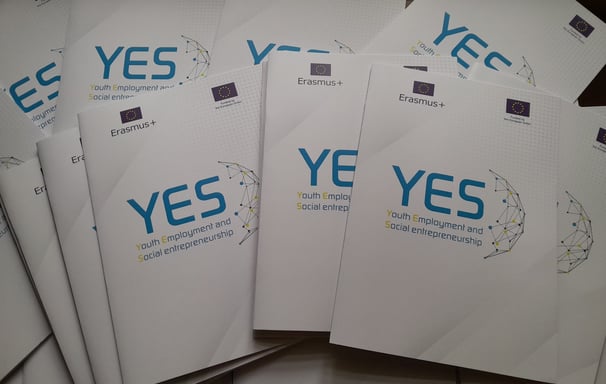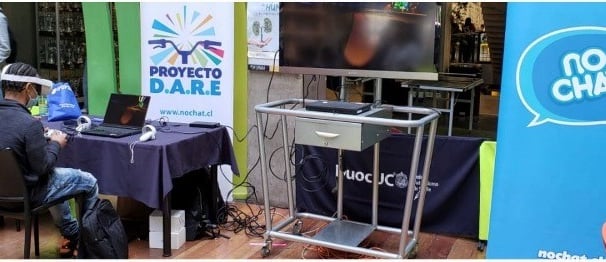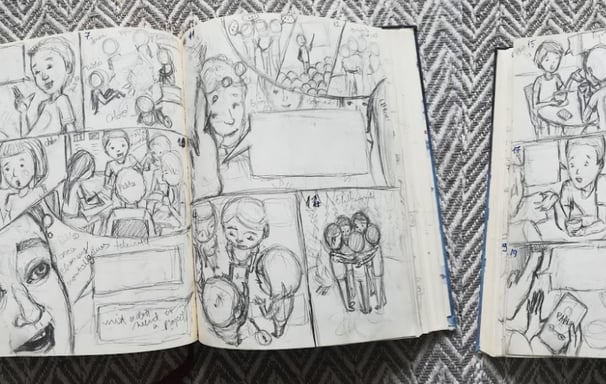Multidisciplinary work examples
Youth Employment and Social entrepreneurship (YES)
Subject area: Entrepreneurship and Innovation
Writing a winning grant submission: The YES project received a $245,000 (150,000 euros) grant.
Ranked #1 out of 321 applications
Implemented on three continents
The project involved young people from Argentina, Belgium, Bulgaria, China and Romania. YES objective 1 was establishing action plans to stimulate youth entrepreneurship and employment, i.e. much-needed local policy frameworks. The project partners believed that local policy frameworks could deliver the highest added value if designed and owned by all stakeholders. Hence, YES objective 2 was to establish local task forces, enlisting businesses, academia, and decision-makers as active contributors to the development of the action plans, together with young people and youth workers.
YES was implemented between 10 October 2020 and 30 June 2023. The project implementation consisted of five work packages: Preparation (4 separate activities), Capacity-building for youth workers I (4 separate activities), Capacity-building for young volunteers (7 separate activities), Capacity-building for youth workers II (5 separate activities) and Completion (6 separate activities).
Evaluated for maximum impact
Our Final Evaluation Report explored the project results in detail. Targets were accomplished at 100%, and the partners reported a staggering 3,017,489,419 people reached through media. Many of the results were peer-reviewed and published in scientific outlets to facilitate dissemination and continuous quality improvement, as follows:
Understanding the predictors of entrepreneurial intentions of young people from Argentina, Belgium, Bulgaria, China, and Romania published in Entrepreneurship and Sustainability Issues.
The online entrepreneurship program effect on young people's self-efficacy and intention: an experiment in Argentina, Belgium, Bulgaria, China and Romania published in the Journal of Entrepreneurship in Emerging Economies.
Entrepreneurship education 2-in-1: Helping young Bulgarians become more entrepreneurial in a 10-month parallel-group randomised trial published in the Journal of Innovation and Entrepreneurship.
Education program and experiential learning in Chinese entrepreneurship education: A year-long social cognitive theory intervention's impact on self-efficacy and intention published in the International Journal of Innovation Studies.


Drugs and Alcohol use Reduction: Engage with young people (DARE)
Subject area: Public Health
Writing a winning grant application: The DARE project received a $245,000 (150,000 euros) grant.
Ranked #2 out of 321 applications (behind our #1-ranked YES project proposal)
Implemented simultaneously in six countries
The project involved young people from Argentina, Belgium, Bulgaria, Chile, Ecuador, the Netherlands and Romania. DARE had three objectives:
Objective 1: To unfold the potential of the project partners' experience in deploying information technologies through peer-to-peer communication strategies by integrating cycling virtual reality (VR).
Objective 2: To study the effectiveness of the project's VR-empowered message.
Objective 3: To establish and involve local working groups (LWG) in the project.
Evaluated for maximum impact
Our Final Evaluation Report explored the project results in detail. Overall, the VR interventions significantly affected the young people's intention to drink alcohol and self-efficacy in abstaining from drinking alcohol and using illicit drugs. However, they did not affect their intention to use illicit drugs. For peer-reviewed results, see:
Effects of using headset-delivered virtual reality in road safety research: A systematic review of empirical studies published in Virtual Reality & Intelligent Hardware.
Alcohol and illicit drugs: prevalence of alcohol and illicit drug use and their predictors in young people from Argentina, Bulgaria, Chile and Romania published in the Global Health Journal.
Virtual reality, drugs and alcohol: A real-world intervention in four countries under review in Universal Access in the Information Society.


The European youth Strategy delivered through Advanced Technologies (eSAT)
Subject area: Policy Development
Writing a winning grant application: The eSAT project received a $190,000 (117,000 euros) grant (ranking unavailable).
Implemented in four East European countries
The project involved young people from Bulgaria, Hungary, Romania and Slovakia. eSAT effectively engaged young individuals throughout its various phases of execution. 32 young volunteers were successfully trained to deliver European Youth Strategy Interventions to their peers, meeting the target with a 100% completion rate, albeit with some variations across time and the participating countries. Equipped with European teamwork experience and self-created innovative comic books, the trained young volunteers engaged in the respective project partner's regular activities, cross-fertilising them with the topic of European citizenship and, in particular, with the European Youth Strategy. In each partner country, interventions were implemented to reach young participants. The extensive open public youth events drew 824 direct participants, 3% above the initial target.
Evaluated for maximum impact
Our Final Evaluation Report explored the project results in detail. The results showed that females generally responded more positively to the interventions than males, albeit only in Hungary and Slovakia. For peer-reviewed results, see:
Impact of European Youth Strategy awareness and participation in EU activities on youth European citizenship: Case studies of Bulgaria, Romania and Slovakia published in Insights into Regional Development.
European Youth Strategy awareness and EU participation: Evaluating the intervention impact on young people's European citizenship in four countries published in the Journal of Social Studies Education Research.


